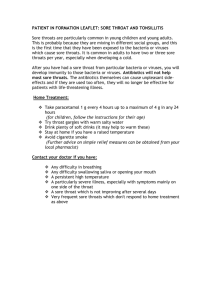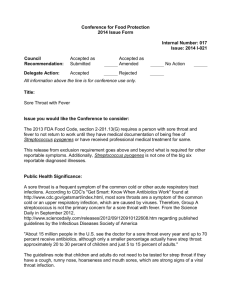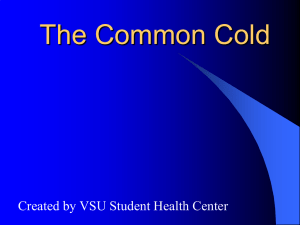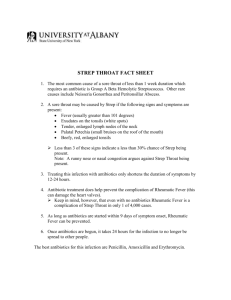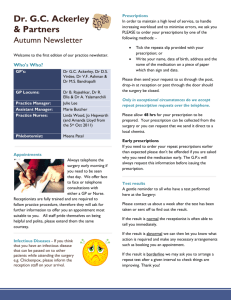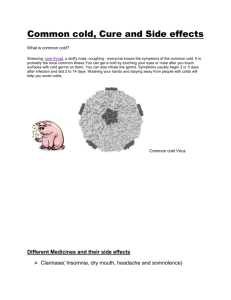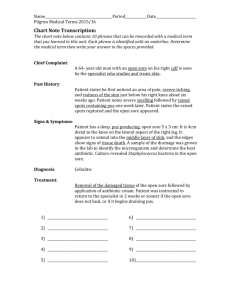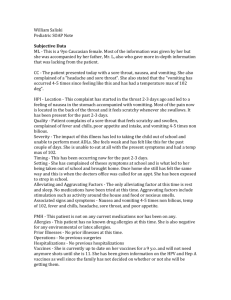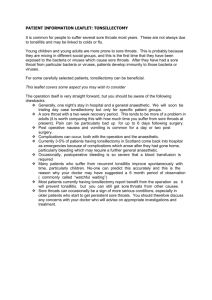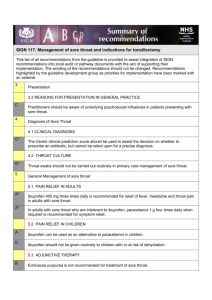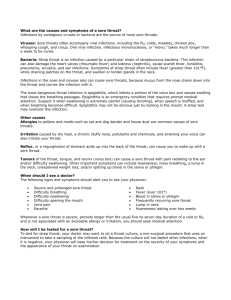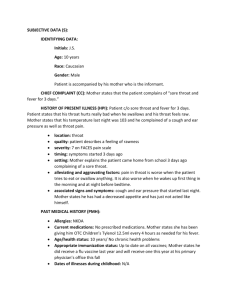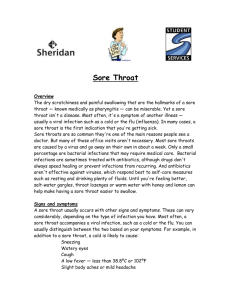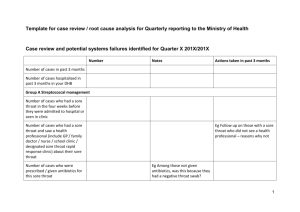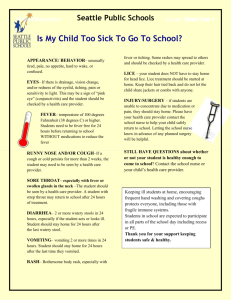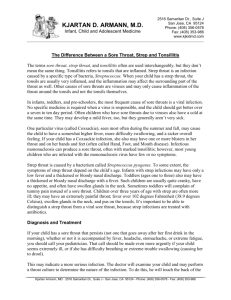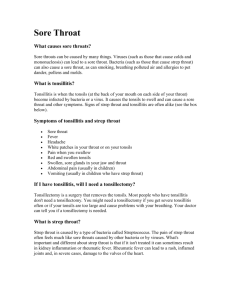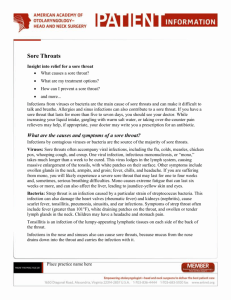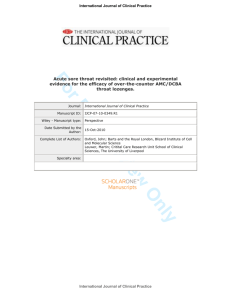Sore_throat
advertisement
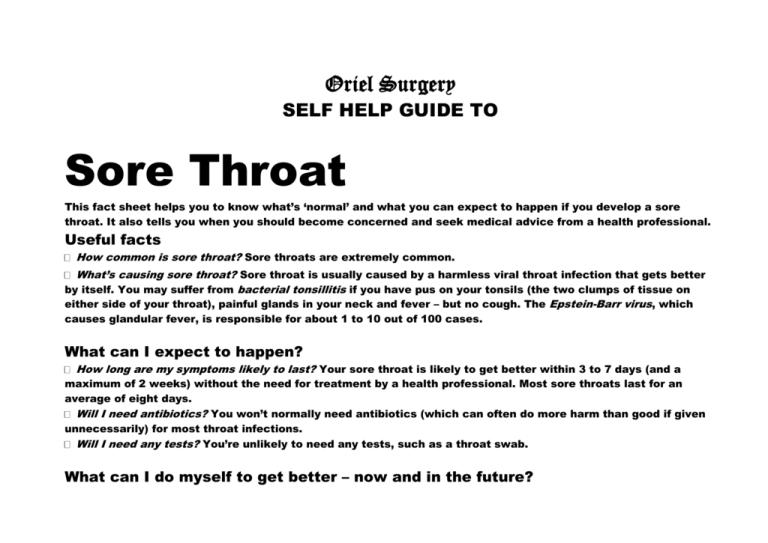
Oriel Surgery SELF HELP GUIDE TO Sore Throat This fact sheet helps you to know what’s ‘normal’ and what you can expect to happen if you develop a sore throat. It also tells you when you should become concerned and seek medical advice from a health professional. Useful facts How common is sore throat? Sore throats are extremely common. What’s causing sore throat? Sore throat is usually caused by a harmless viral throat infection that gets better by itself. You may suffer from bacterial tonsillitis if you have pus on your tonsils (the two clumps of tissue on either side of your throat), painful glands in your neck and fever – but no cough. The Epstein-Barr virus, which causes glandular fever, is responsible for about 1 to 10 out of 100 cases. What can I expect to happen? How long are my symptoms likely to last? Your sore throat is likely to get better within 3 to 7 days (and a maximum of 2 weeks) without the need for treatment by a health professional. Most sore throats last for an average of eight days. Will I need antibiotics? You won’t normally need antibiotics (which can often do more harm than good if given unnecessarily) for most throat infections. Will I need any tests? You’re unlikely to need any tests, such as a throat swab. What can I do myself to get better – now and in the future? Home remedies You can relieve symptoms of sore throat by eating cool, soft food and drinking cool or warm drinks, as well as sucking lozenges, ice cubes, ice lollies or hard sweets. Gargling with warm, salty water may also help reduce swelling and pain. Smoking Avoid smoking and smoky environments as much as you can. Fluids Drink at least 6 to 8 glasses of fluid (preferably water) every day, particularly if you also have a fever. Pain killers Painkillers help to relieve symptoms of sore throat, fever, and headaches in adults. Use what suits you best and talk to your pharmacist if you’re unsure. Gargles, lozenges and sprays There is not enough good quality evidence to recommend non-prescription gargles, lozenges and throat sprays – although you may still find them helpful. When should I seek medical help? Seek medical advice if your symptoms are no better after two weeks or if you have frequent sore throats that do not respond to pain killers. Warning symptoms and signs include: High fever You have a persistent high temperature over 38°C for more than three days that does not come down even if you take ibuprofen and/or paracetamol. Glandular fever A sore throat that doesn’t get better within 10 to 14 days or that gets worse rather than better may suggest glandular fever. Breathing You find it hard to breathe in, and your throat feels like it’s closing up Drooling and swallowing You’re drooling and find it difficult to swallow – this is an emergency! Severity Your pain is severe and does not respond to over the counter pain killers. Voice changes Your voice becomes muffled. Fluid intake You find it difficult to drink enough fluids and become dehydrated Effect on day to day life Your symptoms are so bad that they severely affect your quality of life and prevent you from functioning normally. HIV/AIDS or other causes of reduced immunity If you suffer from a sore throat and have a deficient immune system because, for example, you have HIV/AIDS, or you take certain medication (such as chemotherapy, high dose steroids, disease-modifying anti-rheumatic drugs, or a drug called carbimazole), you should seek medical advice if you develop a sore throat. Where can I find out more? Visit NHS Choices (http://www.nhs.uk/conditions/sore-throat/Pages/Introduction.aspx) or the Choose Well website (www.choosewellmanchester.org.uk/self-care) for further information and advice. Remember that your pharmacist can also help you with assessing your symptoms.
